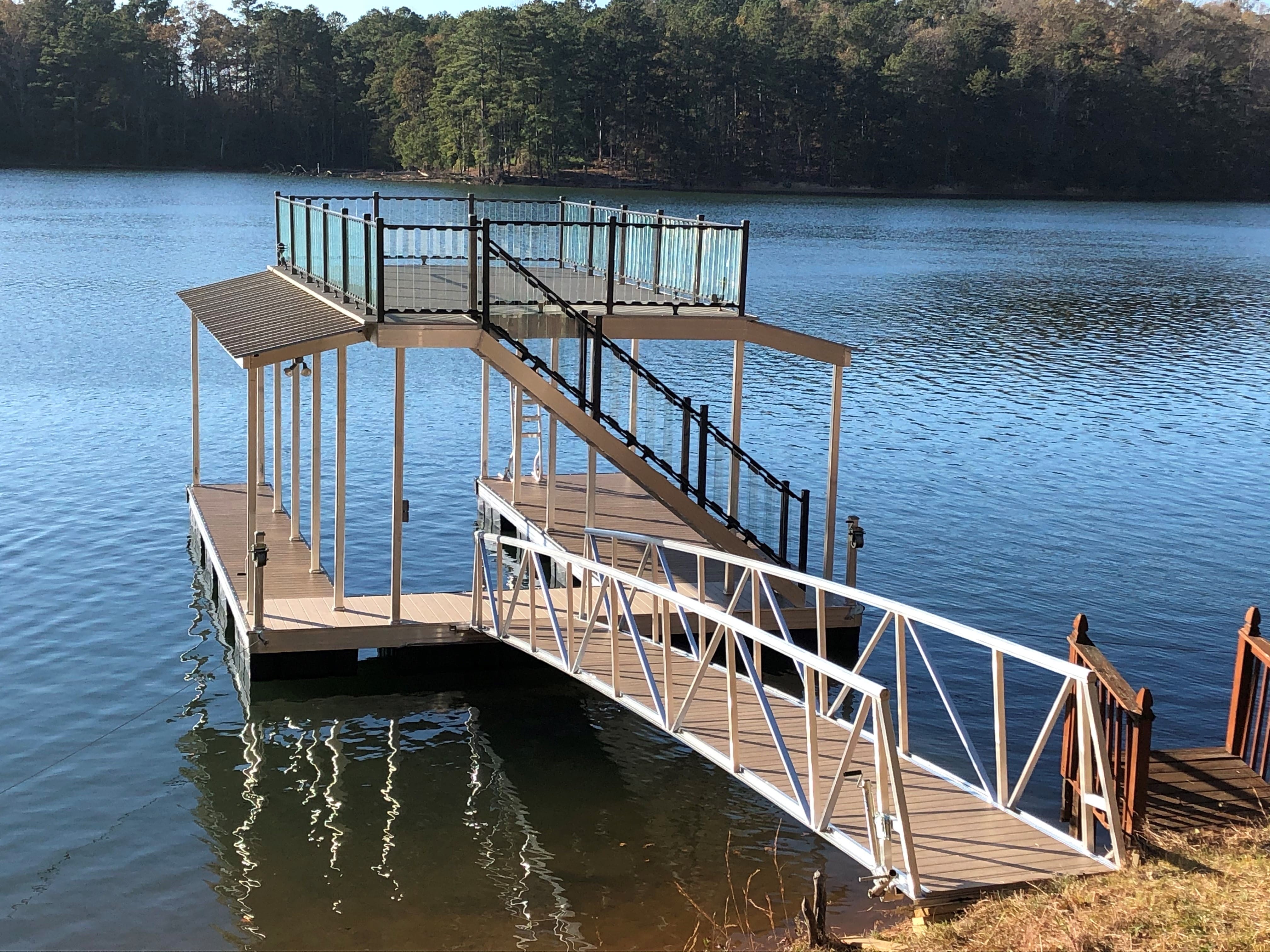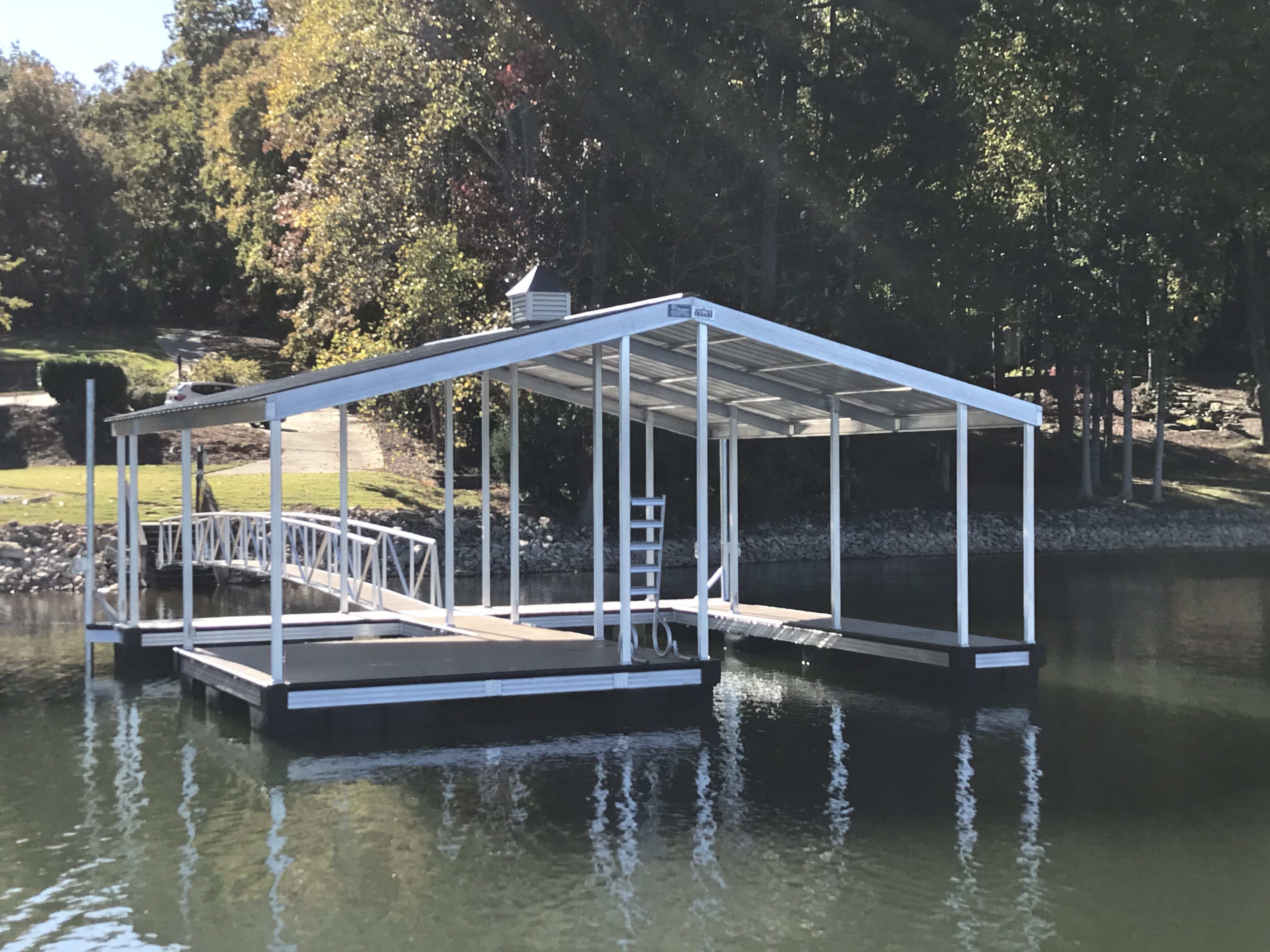Aluminum Dock vs Wood Dock

Should I Choose an Aluminum or Wood Dock for My Boating Needs?
Boating enthusiasts often face the dilemma of choosing between an aluminum dock or a wood dock to suit their boating needs. Both options offer distinct advantages and considerations that should be carefully evaluated before making a decision. In this article, we will explore the key factors to consider when choosing between aluminum and wood docks, comparing their durability, maintenance requirements, environmental impact, customization options, and cost considerations. By the end, you’ll have a better understanding of which type of dock is best suited for your specific requirements.

Advantages of Aluminum Docks
Benefits of Aluminum Docks
Aluminum docks have gained popularity in recent years due to their numerous benefits. One of the most significant advantages is their exceptional durability. Aluminum docks are highly resistant to rust, corrosion, and rot, making them ideal for marine environments. They can withstand harsh weather conditions, including exposure to sunlight, rain, and saltwater, without deteriorating.
Another key advantage is the low maintenance required for aluminum docks. Unlike wood docks, which often require regular sealing, staining, and repairs, aluminum docks are virtually maintenance-free aside from pressure washing annually. They do not require sanding, painting, or sealing, saving you time and effort in the long run.
Additionally, aluminum docks offer excellent longevity. They can last for decades without significant degradation, ensuring a reliable and long-lasting boating infrastructure. This durability makes them a wise investment for boating enthusiasts seeking a dock that will stand the test of time.
Versatility and Customization Options
Aluminum docks also provide a high level of versatility and customization. They can be easily adapted to different configurations, allowing for the incorporation of various boat sizes and layouts. Aluminum dock manufacturers offer a wide range of accessories and add-ons, such as ladders, cleats, benches, and even custom-designed features, to enhance functionality and aesthetics.
Advantages of Wood Docks
Traditional Appeal and Aesthetic Value
Wood docks have long been cherished for their traditional appeal and natural beauty. They exude a warm and inviting atmosphere, creating a classic waterfront ambiance. For many boating enthusiasts, the authentic charm of a wood dock is a significant draw.
Ease of Repair and Affordability
One of the notable advantages of wood docks is the ease of repair. In the event of damage, individual components can be replaced or repaired without the need for extensive expertise or specialized equipment. This makes wood docks a practical choice for those who prefer a DIY approach to maintenance.
Wood docks also tend to be more affordable upfront compared to aluminum docks. If you have budget constraints, a wood dock may provide a cost-effective solution without compromising on functionality.
Considerations for Choosing a Dock
When deciding between an aluminum dock and a wood dock, several factors should be taken into account to ensure the best fit for your specific boating needs. Consider the following aspects:
Budget and Long-Term Costs & Value
Your budget will also play a role in your decision-making process. While wood docks may have a lower initial cost, they often require more frequent maintenance and repairs, which can add up over time. Aluminum docks, although more expensive initially, tend to have lower long-term costs due to their durability and minimal maintenance requirements. Aluminum docks can also add to your waterfront property in the long run.
Personal Preferences
Ultimately, personal preferences should be considered when choosing between an aluminum dock and a wood dock. Some individuals prioritize the classic beauty and natural warmth of a wood dock, while others lean towards the modern aesthetics and low maintenance of an aluminum dock.
Comparing Durability
When it comes to durability, both aluminum and wood docks have their strengths and weaknesses. Understanding the differences between the two can help you make an informed choice.
Aluminum docks excel in terms of durability. They are highly resistant to rust, rot, and pest infestation, making them ideal for saltwater or high-moisture environments. They are also less susceptible to warping, splintering, and decay. However, it’s important to note that extreme impact or collision with heavy objects may dent or damage the aluminum structure.
Wood docks, while generally durable, require regular maintenance to ensure their longevity. Proper sealing, staining, and periodic repairs are necessary to protect against rot, decay, and insect damage. If well-maintained, a wood dock can withstand many years of use, but neglecting maintenance can lead to premature deterioration.
Maintenance Requirements
Maintenance is a crucial aspect to consider when choosing between aluminum and wood docks. Here’s a comparison of the maintenance requirements for each type:
Aluminum Docks: Aluminum docks require minimal maintenance. Regular cleaning with mild soap and water, along with annual inspections for loose connections or damaged parts, is typically sufficient. The non-porous nature of aluminum makes it resistant to staining, mold, and mildew. Additionally, there is no need for sealing or painting, saving you time and money.
Wood Docks: Wood docks necessitate more extensive maintenance. They need to be cleaned regularly and inspected for signs of rot or decay. Sealing the wood with a suitable marine-grade sealant and applying a fresh coat of stain every few years is recommended. Additionally, repairs to damaged boards or hardware may be necessary over time.
While wood dock maintenance can be a labor-intensive task, some boating enthusiasts enjoy the hands-on approach and see it as a part of the overall boating experience. However, if you prefer minimal hassle-free boating, an aluminum dock may be more suitable.
Environmental Impact
Environmental considerations are increasingly important in modern times. Let’s explore the environmental impact of aluminum and wood docks.
Aluminum Docks: Aluminum is a highly recyclable material, and many aluminum docks are made from recycled content. This makes aluminum docks a more sustainable option compared to wood docks, which require trees to be harvested.
Wood Docks: Wood docks have a more significant environmental impact due to the need for timber. However, some wood docks are made from sustainably sourced or reclaimed wood, which reduces their environmental footprint.
Customization Options
The ability to customize your dock according to your preferences is an important aspect to consider.
Aluminum Docks: Aluminum docks offer extensive customization options. Manufacturers provide a wide array of accessories, such as boat lifts, swim ladders, kayak racks, and seating areas, to enhance functionality and create a personalized boating experience. You can choose from various decking materials, finishes, and colors to match your style.
Wood Docks: Wood docks also offer customization options, albeit to a slightly lesser extent. You can select different types of wood, finishes, and stains to achieve the desired look. Accessories and add-ons such as benches, cleats, and lighting can be incorporated to enhance usability.
It’s important to note that the customization options available for wood docks may be limited compared to aluminum docks due to the structural limitations of wood.
Cost Considerations
Cost is a significant factor for many boating enthusiasts. Let’s compare the initial and long-term costs of aluminum and wood docks.
Initial Cost: Aluminum docks typically have a higher initial cost compared to wood docks. This is primarily due to the cost of materials and manufacturing processes involved in aluminum dock construction. On the other hand, wood docks tend to be more affordable upfront.
Long-Term Costs: While aluminum docks have a higher initial cost, they often have lower long-term costs. This is because aluminum docks require minimal maintenance and repairs over their lifespan. Wood docks, on the other hand, require regular maintenance, sealing, and occasional repairs, which can accumulate expenses over time.
When considering the cost, it’s important to weigh the upfront investment against the long-term maintenance requirements and potential resale value of your dock.
Choosing the Right Dock
Choosing between an aluminum dock and a wood dock ultimately depends on your specific needs, preferences, and budget. Consider the following factors when making your decision:
- Location, climate, and water conditions
- Maintenance requirements and your willingness to invest time and effort
- Aesthetic preferences and the ambiance you want to create
- Environmental Considerations and sustainability goals
- Customization options and desired features
- Budget, both upfront and long-term costs
Custom Dock Builder in Georgia & South Carolina
If you are searching for a boat dock for your lakefront property, Marine Specialties can help through the entire process from initial consultation and design to final installation. For an estimate for a new boat dock in the Gainesville, GA area, you can request an estimate online or give us a call at (770) 531-7735.